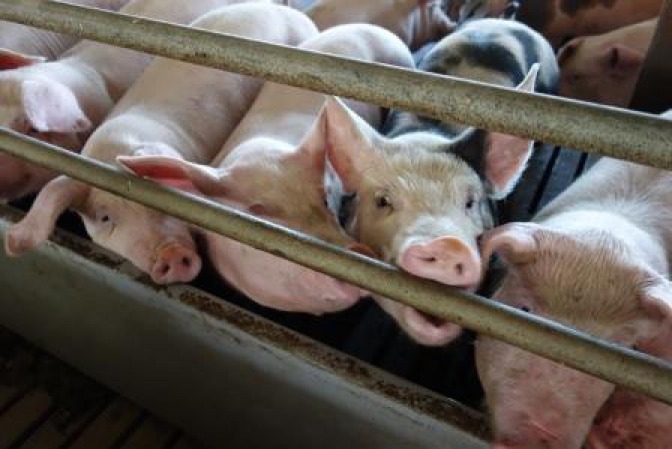Pig farmers from the Algemeen Boerensyndicaat (ABS) union in Flanders are decrying the state of their sector, saying that “the farmer is the weakest link in the chain,” and that “this weakest link is broken.”
In a scathing open letter, they address slaughterhouses, processors and traders who they say have reaped profits while farmers have struggled to make ends meet.
“You have managed to maintain your profits. More than that: you have succeeded in increasing your profits, all while the consumer price of pork fell in many cases,” the letter reads.
“Increased raw material costs, extra animal welfare requirements, more environmental requirements... you did not care about any of it. The only thing that mattered was that you had to, and would, achieve your margins. Congratulations, you succeeded.”
While summer marks the start of holidays for many families, the pig farmers say no vacations are in their future.
“The farmer is financially and mentally broken. For many pig farmers, a holiday is out of the question,” said Bart Vergote, pig farmer and spokesperson for the ABS pig farmers.
“It will be work - hard work - trying to close the gap. We will probably still be ‘selling at a loss.’”
Pleas from the industry were made during the last Environment Committee meeting in the Flemish Parliament, where Flemish Minister of the Environment Zuhal Demir (N-VA) addressed the concerns with assurances that she understood them and has been in regular contact with industry players.
“Farmers individually, of course, are not to blame for the challenges we face,” said Demir, adding that efforts are being made in regards to the mental well-being of farmers as they face “agri-bashing.”
Demir conceded that farmers are also faced with a complex system of rules and regulations that can make it difficult for them to operate.
“The complexity of the rules comes up very often,” said Demir. “Those rules are indeed very complex but, if I understand correctly, those rules were always made in consultation with the sector itself, or with the sector organisations. I am the first to say, however, that it is complex.”
The ABS farmers made a pamphlet (which they gave to the Minister) stating: “Enough is enough. Always and everywhere getting the blame, and being without any future perspective, is a very heavy burden.”
Flemish MP Steven Coenegrachts (Open Vld) said that while it isn’t unusual for an agricultural organisation to take such actions, the tone and content was striking.
“There is a certain desperation, because of the uncertainty and complexity,” said Coenegrachts.
“I don't think anyone in the agricultural sector denies that things are about to happen - and have to happen - and that agriculture has a role to play in that. But we need to be able to provide that legal certainty as soon as possible so that it is once again clear within what framework an agricultural entrepreneur can develop his business.”
Minister Demir said she is willing to simplify the regulations that farmers claim hinder their ability to successfully run those businesses.
“I am the very first one who would like to be on your side to do that,” Demir said.
“[Simplifying the rules] will make the farmer a farmer again, and less of an accountant. It has become enormously complicated in recent years. This causes frustration among farmers. They feel more like accountants than anything else and see no progress. We will definitely have to look at [fixing] that.”

